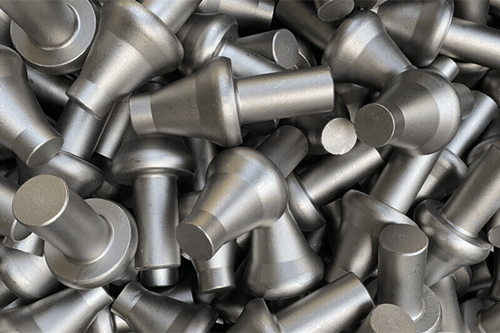The manufacturing industry has always been the vanguard of technological advancement, forever seeking new processes and materials to improve efficiency, cost-effectiveness, and product quality. Cold forging steel has emerged as a preferred method of creating machine parts. This technique involves deforming steel below its recrystallization temperature to produce a highly durable and precise workpiece.
Here are five reasons why machine users are increasingly opting for cold forged steel parts.
Superior Strength and Durability
The cold forging process involves deformation of steel at room temperature, which aligns its grain structure along the direction of the part’s shape. This alignment significantly enhances the strength and durability of the finished product. Cold forged steel parts can withstand high levels of stress, wear, and tear, making them ideal for heavy-duty machinery and high-performance applications.
Enhanced Precision and Surface Finish
Cold forging steel allows for a high degree of control over the final product’s dimensions and surface finish. Unlike traditional manufacturing methods, cold forging eliminates the need for most secondary machining operations. This results in parts that are not only dimensionally accurate but also feature a superior surface finish. This precision and finish quality are essential for machine parts that require tight tolerances and smooth surfaces to function efficiently.
Energy and Cost Efficiency
The cold forging process has lower energy costs compared to hot forging or casting processes. Moreover, as cold forging typically produces near-net-shape parts, there is less wastage of material. The reduction in energy consumption and material waste translates into significant cost savings. This makes cold forged steel parts an attractive option for companies seeking to reduce their manufacturing costs and environmental impact.
Greater Design Flexibility
The process can produce parts with varying thicknesses, intricate details, and elaborate geometries while maintaining high precision and quality. This design flexibility is particularly beneficial in industries such as automotive, aerospace, and industrial machinery, where custom, high-performance parts are required.
Scalability
Cold forging is a highly scalable process, suitable for high-volume production runs. Once the initial setup is done, parts can be produced in quick succession, making it ideal for mass production. Given the robustness, precision, and quality of the parts, along with the cost and energy efficiency of the process, cold forging is an excellent choice for industries requiring large quantities of steel parts.
For cold forged steel products, check out https://www.coldforgingchina.com.
